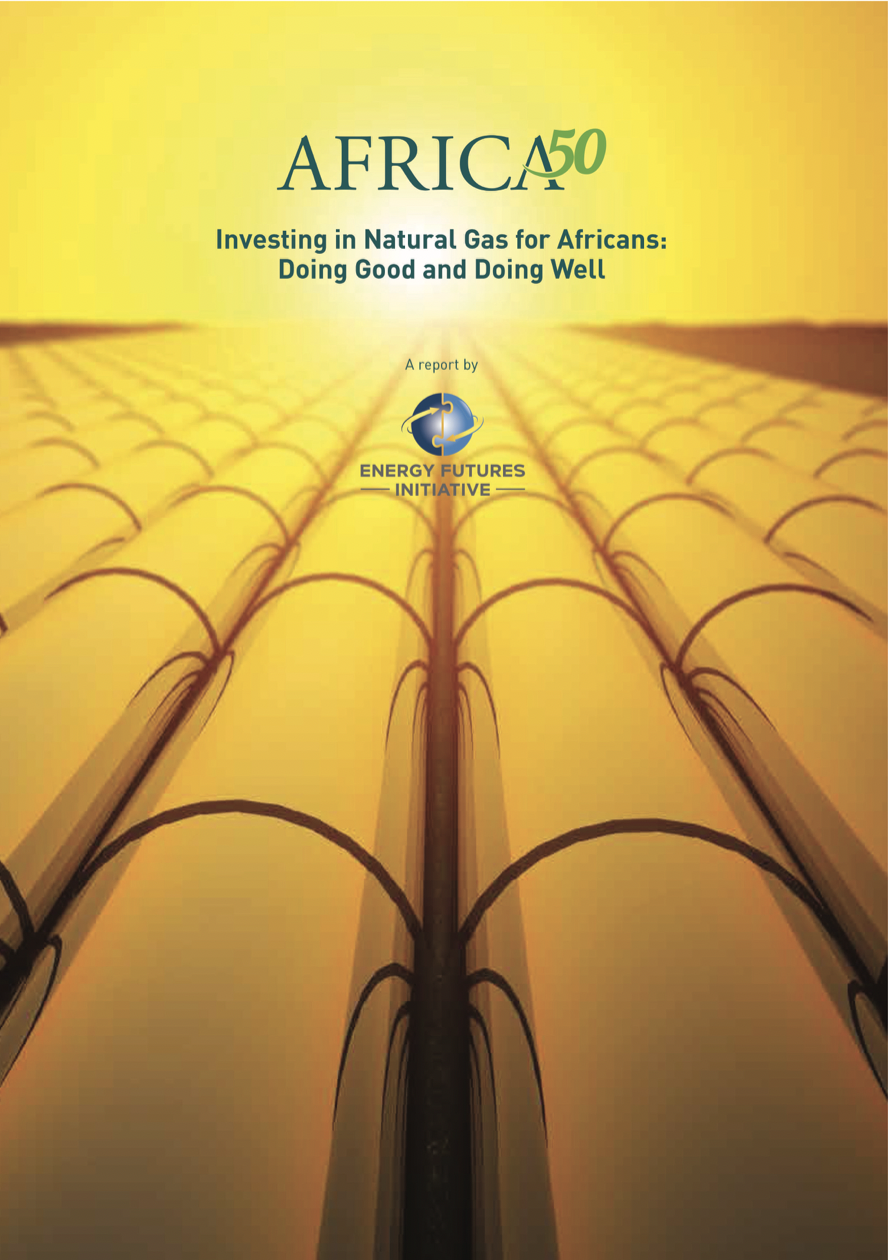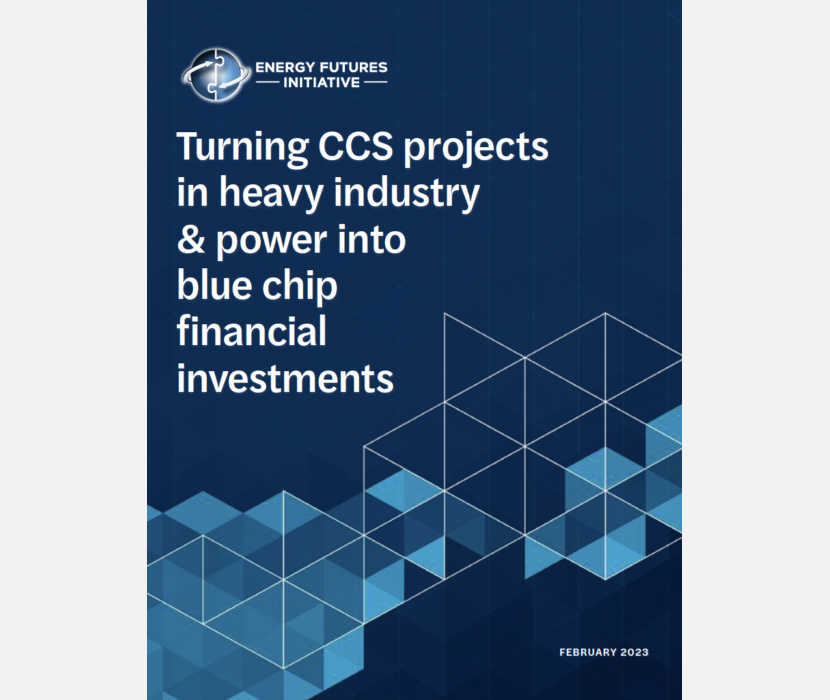Investing in Natural Gas for Africans: Doing Good and Doing Well (November 2018) outlines the challenges, opportunities, and benefits of natural gas development in Africa. While there are significant natural gas resources across the African continent, natural gas has low penetration in African economies. This report explores the scale of potential domestic demand by mid-century, along with the technologies that can help increase that demand and deliver the supply and infrastructure needs associated with this expansion. The report was was produced jointly by the Energy Futures Initiative and Africa50.
Given the right set of policies and incentives, natural gas could provide a sound foundation to support and accelerate Africa’s economic growth, at the same time that it helps African nations meet their key electrification, health, and environmental goals. To meet increasing energy demand, many African countries will need to invest in (1) developing domestic natural gas resources to ensure increased energy access, (2) securing affordable and reliable natural gas imports to help establish local markets for gas in power generation, industry, transportation, and households, and (3) planning for building natural gas export capabilities to profit from the rapidly growing global gas market.
While the flexibility of gas is attracting attention, infrastructure for its transportation and distribution is inflexibile and can diminish its uses in developing regions like sub-Saharan Africa. A suite of technologies can address a range of demand-limiting infrastructure issues. Some of the natural gas technologies and infrastructure options that merit significant attention of policymakers and investors in Africa are the following:
- Large-scale gas turbines (natural gas combined cycle plants, simple cycle natural gas plants) – For large, sustained daily demand, natural gas combined cycle technology offers a low cost, reliable option. For meeting variable demand, natural gas peaking technology offers an economical, flexible option. Large-scale gas generation can provide stability of supply while replacing more carbon-intensive fuels like coal and oil.
- Small-scale gas generation (gas-based microgrids, aero-derivative simple cycle gas turbine, and reciprocating internal combustion engines, and microturbines) – The processing of wet natural gas, which consists of methane along with natural gas liquids, creates commodity byproducts such as liquefied petroleum gas (LPG) that can be used for cooking and heating; as well as ethane, that can be used as a feedstock for petrochemical production.
- “Virtual pipelines” (liquefied natural gas or compressed natural gas that is transported on existing transportation infrastructure: rail cars, barges, trucks, etc.) – These offer affordable, technologically feasible alternatives to traditional natural gas pipeline infrastructure.
- Floating storage and regasification units – Low costs (compared to land-based regasification facilities) reduce barriers for new market entrants, especially those without established infrastructure and which have lower volumes of gas demand.
This report was launched during an event on the role of natural gas in Africa’s energy future that was hosted jointly by the Energy Futures Initiative (EFI) and the Atlantic Council’s Africa and Global Energy Centers. Opening remarks were delivered by Ambassador Richard Morningstar, founding chairman of the Global Energy Center. Keynote remarks were delivered by Ernest Moniz (EFI CEO), Alain Ebobissé (CEO of Africa50), and Melanie Kenderdine (EFI principal and senior fellow with the Global Energy Center). Ebobissé presented the report and discussed how infrastructure fund Africa50 is supporting natural gas development on the continent. Kenderdine discussed various scenarios for natural gas development, and stressed the need to monetize the more than $1 trillion in natural gas resources flared or stranded throughout the continent. These remarks were followed by a discussion with Ebobissé, Kenderdine, and Andrew Kamau, principal secretary of the State Department of Petroleum of the Ministry of Energy and Petroleum of the Republic of Kenya, moderated by Randy Bell, director of the Global Energy Center.
Launch Event
(Share this post with others.)





